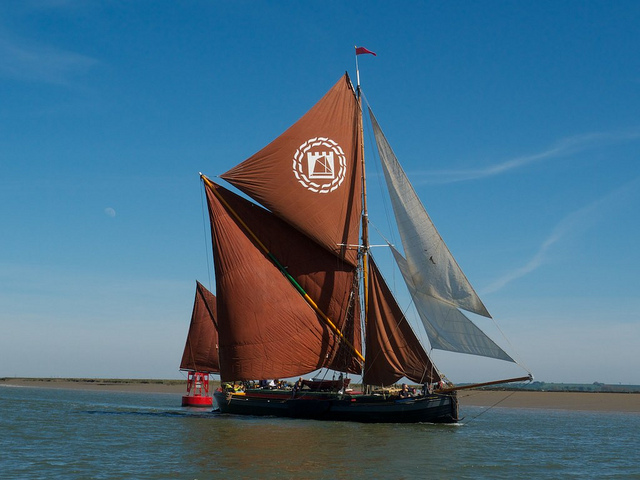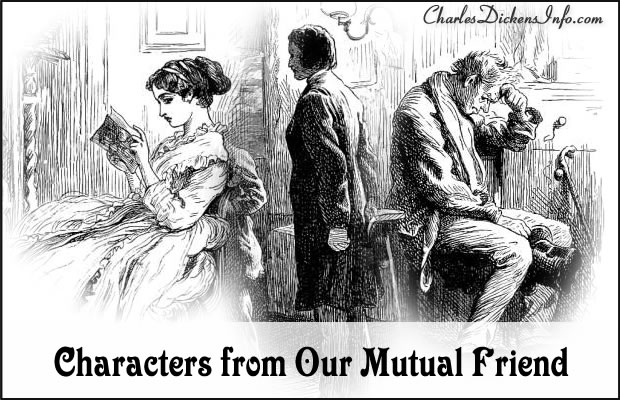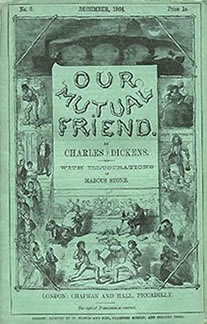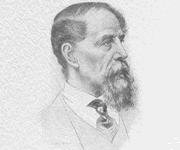Our Mutual Friend by Charles Dickens
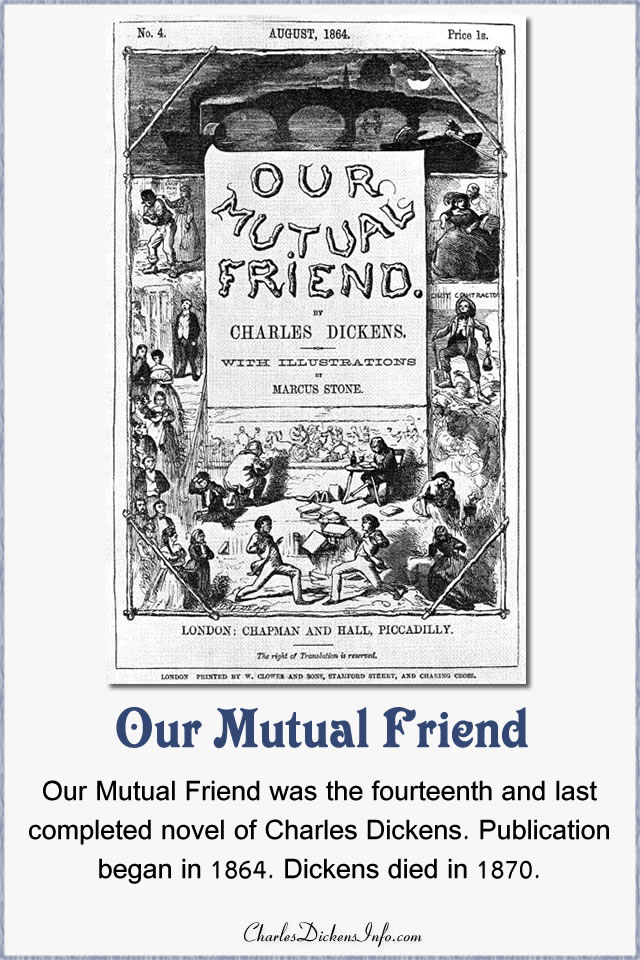
Last Updated on September 29, 2021
Our Mutual Friend is the fourteenth and last completed novel of Charles Dickens.
Dickens began writing the novel in 1863. It was first published in monthly installments that began in May of 1864 and ended in November 1865.
Marcus Stone was the illustrator.
Table of Contents
Our Mutual Friend – Dickens’s Life At The Time
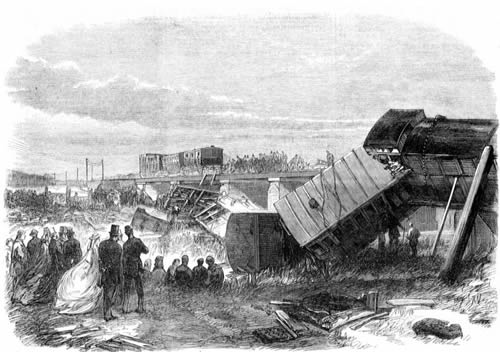
The Staplehurst railway accident as depicted in the Illustrated London News
On September 12, 1863 Dickens’s mother, Elizabeth died. In November of that year, Dickens began to write Our Mutual Friend.
Walter Dickens, his son, died in India in January of 1864. The first installment of Our Mutual Friend was published in May of that year.
In June of 1865 Charles Dickens was involved in the Staplehurst railway accident. The final chapters of Our Mutual Friend were published later that year in November.
The Staplehurst Railway Accident
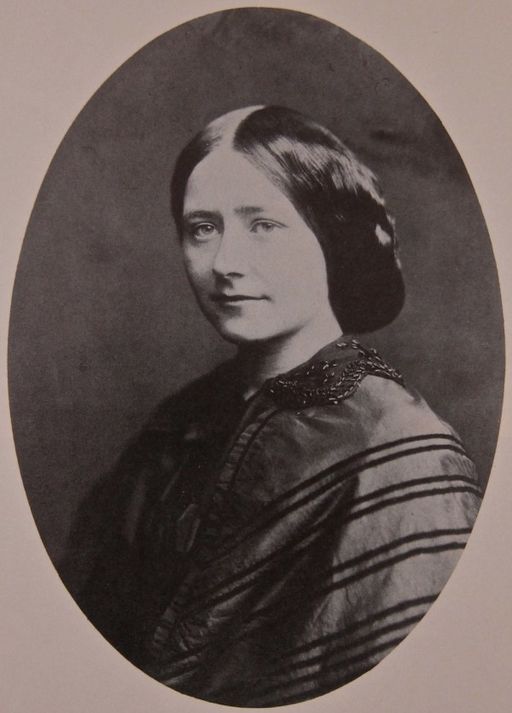
Ellen Ternan in 1858
In 1865, Charles Dickens had a brush with death. While he survived, others weren’t as lucky. Ten people died and forty were injured in the Staplehurst railway accident.
On June 9th of 1865, Charles was returning from a trip to Paris. In the coach with him were Ellen Ternan and her mother.
The train track was being repaired near Staplehurst. There was a 42 foot long gap in the tracks over the bridge crossing the River Beult. The train’s engineer spotted the problem at the last minute, but it was too late.
The engine and the first part of the train made it across the gap. However, the coaches in the center and the rear of the train fell into the river bed . All but one of the first-class coaches went into the ravine. That was the coach that carried Dickens and the Ternans.
When the accident scene was being evacuated, Dickens remembered something. He made his way back into the wrecked train one last time to retrieve the latest installment of Our Mutual Friend, the novel he was writing at the time.
We’ll Never Know
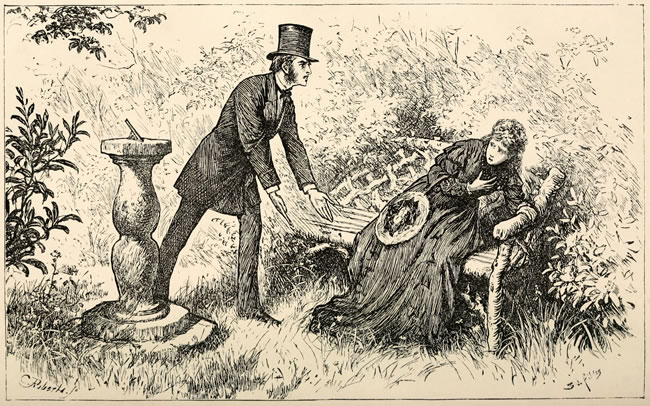
The Mystery of Edwin Drood
In Our Mutual Friend one of the characters is thought to be dead, but really isn’t. In The Mystery of Edwin Drood, Dickens’s last novel, Edwin Drood disappears. Was Drood murdered? People believe so but no body is ever found.
Was Dickens planning to use the same plot twist that he’d used in Our Mutual Friend? Perhaps, just like the character in Our Mutual Friend, Edwin Drood wasn’t really dead. We’ll never know. Dickens died before The Mystery of Edwin Drood was completed.
We’ll never know.
Dust Business
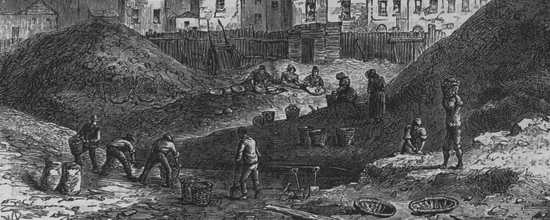
The dust-heaps in Somers Town as seen in 1836. Image is from an engraved wood print, circa 1880.
The dust, or garbage, business plays a large part in Our Mutual Friend.
The elder John Harmon made his fortune as a dust contractor. Noddy Boffin becomes the “Golden Dustman” while Silas Wegg finds something in a mound of garbage that he thinks could take away Noddy’s wealth.
In the mid-nineteenth century, garbage was collected by private contractors. The rubbish was piled into mounds and people sifted through the mounds looking for things to sell. They might find jewelry or money that was accidentally thrown away.
However, most of the trash was sold as raw materials for other industries. Soap makers, road builders, paper manufacturers, and others bought items from dust contractors.
Themes in Our Mutual Friend

John Rokesmith (John Harmon) and Bella Wilfur
One of the themes of the novel is the corruption that wealth can bring. Bella Wilfer undergoes great changes during the novel as she deals with this issue. Toward the beginning of the novel, she makes a stunning declaration.
“I have made up my mind that I must have money, Pa. I feel that I can’t beg it, borrow it, or steal it; and so I have resolved that I must marry it.”
Later in the book, her feelings change.
“O Mr. Rokesmith, before you go, if you could but make me poor again! O! Make me poor again, Somebody, I beg and pray, or my heart will break if this goes on! Pa, dear, make me poor again and take me home! I was bad enough there, but I have been so much worse here. Don’t give me money, Mr. Boffin, I won’t have money. Keep it away from me, and only let me speak to good little Pa, and lay my head upon his shoulder, and tell him all my griefs. Nobody else can understand me, nobody else can comfort me, nobody else knows how unworthy I am, and yet can love me like a little child. I am better with Pa than any one–more innocent, more sorry, more glad!”
More About Our Mutual Friend
Collection of Quotations from Our Mutual Friend


